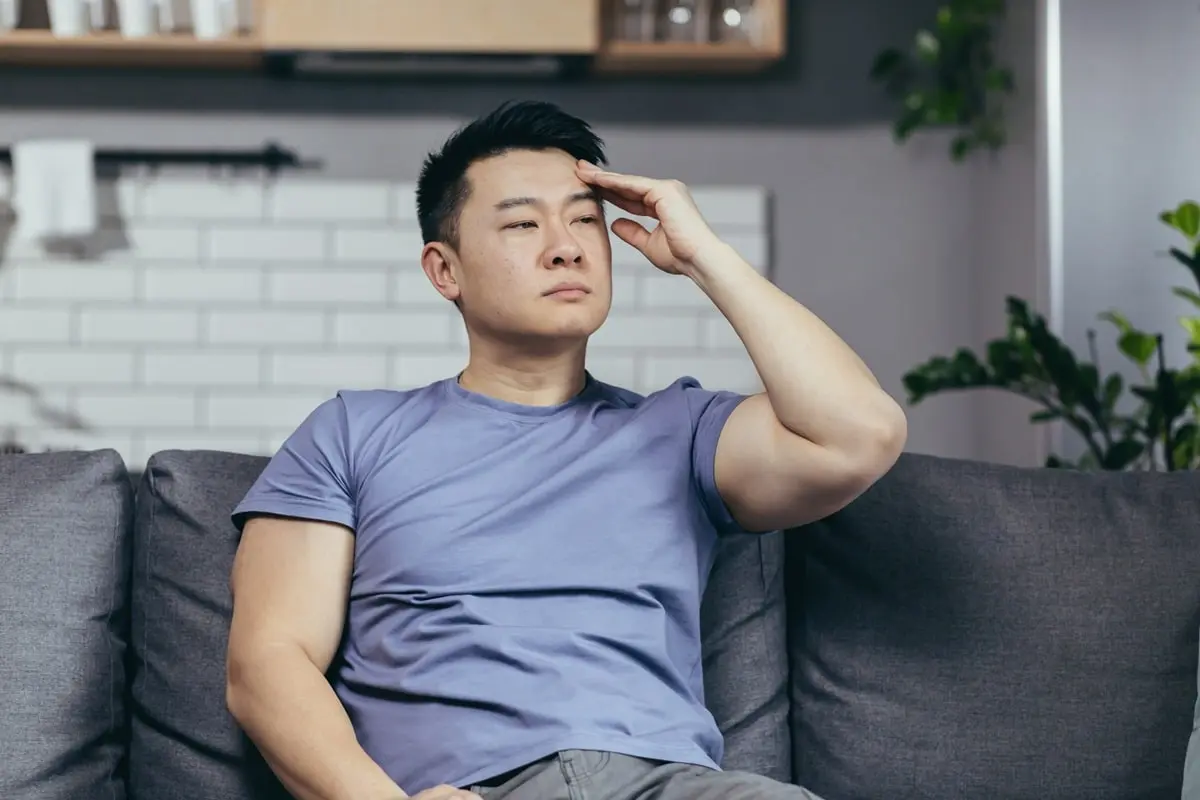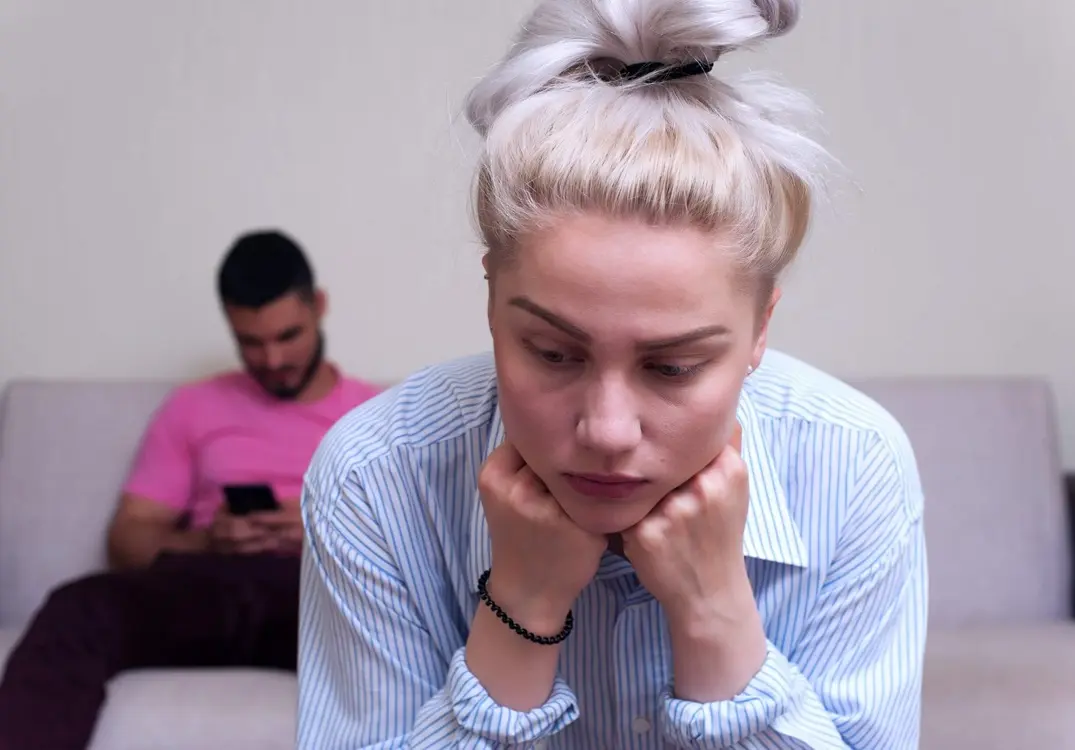Last updated: June 14th, 2025
If you’re suffering from anxiety or panic attacks, it’s possible that you have difficulty tolerating uncertainty. If uncertainty avoidance drives many of your efforts to cope with anxiety, you may benefit from cognitive-behavioral therapy.
Living with Uncertainty
Uncertainty is an inescapable part of life. And it’s something that, generally speaking, feels uncomfortable because it makes it harder to anticipate the future and to feel in control of things in your life. Feeling certain of something often gives you a sense of reassurance, predictability, and comfort. In contrast, dealing with uncertainty can make you feel unsettled, apprehensive about how things will go, and anxious. For some people, the “not knowing” in a given situation can be one of the most uncomfortable parts.
People vary widely in terms of how well they are able to tolerate uncertainty in their lives. While you likely know people who tend to easily “go with the flow,” you also probably know others who have a much harder time allowing uncertainty into their lives.
Also, some uncertainties are easier to live with than others. Consider that it can be easier to tolerate uncertainty when you perceive things as:
- Fully outside your control
- Inconsequential to your life
- Very unlikely to happen
- Familiar, or similar to prior experiences
It can be harder to tolerate uncertainty when you perceive things as:
- Things you are able to control or influence the outcomes
- Having an important or significant impact on your life
- Concerning and likely to occur
- Unfamiliar to you
Uncertainty Avoidance
Intolerance of uncertainty is a psychological characteristic that is related to many types of emotional distress, particularly anxiety disorders and related conditions. The reason is that if you can’t tolerate not knowing something you will be tempted to use uncertainty avoidance to cope with the situation. Uncertainty avoidance happens when you take an action so that you don’t have to feel the fear that comes with not knowing something important.
For example, let’s say you go on a date with someone and have a good time, but you’re unsure if they feel the same way. Tolerating uncertainty would be waiting until the next time you naturally communicated with them to check in. Uncertainty avoidance, on the other hand, might mean that because you can’t stand not knowing, you text them immediately or repeatedly. Or perhaps you reflexively call a friend or family member to ask them what they think.
If you have difficulty tolerating uncertainty, you’re likely to have higher levels of emotional distress. People with generalized anxiety disorder (GAD), social anxiety disorder (SAD), obsessive-compulsive disorder (OCD), and unhealthy perfectionism in particular often have trouble tolerating uncertainty. They turn to uncertainty avoidance when anxiety is high.
Fortunately, the ability to tolerate uncertainty is just that – an ability or a skill that can be practiced and strengthened in order to alleviate emotional difficulties. Helping you strengthen your ability to tolerate uncertainty is an important part of cognitive-behavioral therapy (CBT) for anxiety and related disorders. Once you improve your ability to tolerate uncertainty, you will be able to use other coping strategies besides uncertainty avoidance.

The Role of Uncertainty and Avoidance in Mental Health
If uncertainty causes you to feel overwhelmed, scared, and anxious, it’s only natural to do whatever you can to reduce it or avoid it. Unfortunately, uncertainty avoidance often increases anxiety and worsens emotional suffering.
Having a sense of control over things that make you anxious usually helps decrease anxiety. But this sense of control is often an illusion. Some uncertainties in life are beyond your control, no matter how much you might think otherwise. So, although trying to control them may feel helpful, it may be worsening your anxiety and mood.
For example, you may want to look up hotel reviews when planning a trip because you don’t want to stay at a place you’ll dislike. But in doing this, you may find the hotels you’re considering have a mix of positive and negative reviews. Trying to find more and more reviews or reading them closely to feel certain about which place is best can worsen your anxiety. Reading reviews can be helpful, but your research will never be able to guarantee you’ll have a pleasant stay.
Difficulty tolerating uncertainty explains some of the common problems seen in various mental health conditions:
- Uncontrollable worry
- Worry can feel like a productive way to prevent feared outcomes from coming true or find solutions to difficulties. It can also intensify anxiety over time by preventing you from otherwise coping with uncomfortable emotions.
- Compulsions (rituals) in obsessive-compulsive disorder (OCD)
- Compulsions are repetitive behaviors performed in response to emotional discomfort, and often aim to minimize any doubt or uncertainty. While these may be effective in the short term, in the long term they strengthen the “vicious cycle” of OCD and worsen anxiety.
- Reassurance seeking and rumination
- Seeking reassurance from others and ruminating about a prior experience (e.g., replaying a social interaction in your mind to make sure you didn’t say something weird) seem to make sense if you are anxious about how a given situation could negatively affect you. However, the relief from anxiety is usually short-lived, lasting only until another anxiety-provoking social concern comes along.
- Elaborate or time-consuming habits in unhealthy perfectionism
- Rigidity that gets in the way of daily life and causes distress is a hallmark of unhealthy perfectionism. Being overly controlled or measured and methodical often comes from efforts to minimize or eliminate uncertainty and attain perfection. However, such behaviors tend to consume lots of time and energy and contribute to feeling more stressed than before.
- Avoidance
- Avoidance can take many forms, including procrastination, avoiding certain situations or experiences altogether, or even distracting yourself from thinking about something.
How Can CBT Help Me Better Tolerate Uncertainty?
Every person has the innate ability to handle uncertainty. In fact, it’s something you do in some way every single day. So, the first step to strengthening this skill is acknowledging that it’s one you already draw on and use regularly. Even if you feel like you “can’t handle” uncertainty, you already do in some way.
Uncertainty is an uncomfortable position. But certainty is an absurd one.
Voltaire
When uncertainty causes distress, there are ways you can learn to cope with it and lower your anxiety and panic symptoms. CBT uses various proven techniques to help you increase your tolerance for uncertainty and feel better. Some of these strategies include:
- Stopping or reducing behaviors (like those listed above) that try to eliminate uncertainty or control something that’s beyond your control
- Changing your mental perspective on certain situations. This will allow you to increase your mental flexibility and consider a broader range of helpful interpretations. For example, you can remind yourself that, “Although things may turn out badly, that does not mean I will not be able to cope.”
- Repeatedly and gradually pushing you out of your “comfort zone” by helping you approach, rather than avoid what makes you anxious (this approach is called exposure therapy).
- Practicing mindfulness meditation to make it easier to accept the uncertainty present in life. Through cultivating mindfulness, you can be more aware of how you’re impacted by uncertainty and your tendencies toward unhelpful coping – in real time. This can help you pivot to be more accepting of reality as it is, including the elements that make it uncomfortable. This ends up being healthier than trying to push discomfort away.
All of these techniques stem from the premise that the best way to deal with uncertainty is to embrace and tolerate it, rather than avoid or eliminate it through efforts to feel in control. With the guidance of a CBT therapist, you can put your coping skills to the test and learn what works best for you. You can also discuss the limits of your abilities to control things in your life and the future, and how to accept these limits.
RELATED: How Avoidance Creates Anxiety
By regularly confronting the day-to-day uncertainties that are part of life, you can become better at feeling more comfortable when dealing with them. This takes practice. Fortunately, CBT has a good track record of helping people make exactly the kinds of changes that will help.
Summarizing Why and How to Address Uncertainty Avoidance
While uncertainty is something you can’t avoid in life, you can learn to tolerate it in healthy ways. If you do, it’s likely to improve your mood and reduce your stress. CBT is proven to help people strengthen their ability to tolerate uncertainty, and provide relief for anxiety and related disorders. It can be hard to know just when uncertainty avoidance is contributing to feeling anxious or worsening your mood.
Consulting with a CBT therapist can help you determine if working on improving your tolerance for uncertainty can be helpful for you. If you feel anxious and you experience uncontrollable worry, compulsive behavior, excessive reassurance seeking, rumination, or procrastination, it might be particularly helpful to consult with a therapist. It’s possible to find relief from anxiety without needing to eliminate life’s uncertainties. If you’d like help in better tolerating uncertainty, please get in touch with us at the Manhattan Center for Cognitive-Behavioral Therapy.










